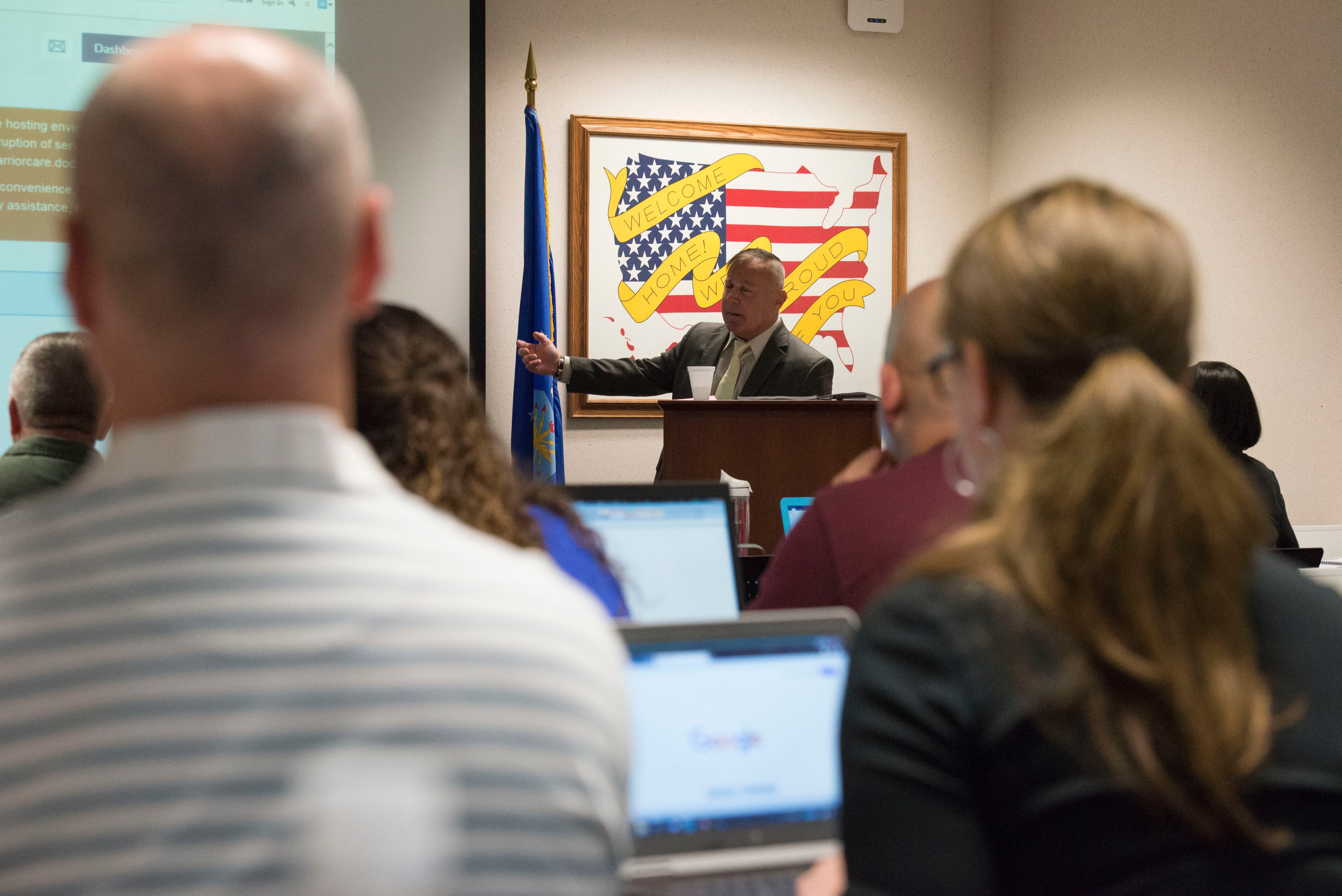More service members are attending military-to-civilian transition classes than ever before, but thousands are still falling through gaps in the separation process and missing out on help needed to successfully start their lives as veterans, advocates and lawmakers warned on Wednesday.
Of particular concern are the large numbers of separating troops who are missing mandatory two-day transition classes. In a report released this week, officials from the Government Accountability Office found that the requirement was waived for more than half of all service members — and nearly one-fourth of those troops were considered at risk for transition problems.
That translated last year into nearly 11,000 military members — many of them enlisted — leaving the ranks without clear employment plans or a handle on what support resources are available.
In addition, about 70% of all troops are taking transition assistance classes less than a year before their planned separation, later than required program deadlines.
“A solid transition can set veterans up for success after service. Conversely, a failed transition could lead to devastating consequences like unemployment, homelessness, even suicide,” said Ryan Gallucci, executive director of the Veterans of Foreign Wars.
“It is long past time that we begin treating transition as a national security priority.”
RELATED

More than 200,000 service members leave the military and enter civilian life annually. Past research has shown that the first year out of service is when veterans are most vulnerable to mental health issues and suicidal thoughts, especially if they struggle with finding new jobs and peer networks.
Despite the shortcomings detailed by outside advocates, federal officials are seeing signs of improvement in the overall transition efforts. Overall participation in Transition Assistance Program classes — which include both one-day seminars and longer sessions — reached record levels in fiscal 2022, up about 40% from the previous year.
In a rare joint hearing on Wednesday, members of the Senate Veterans’ Affairs Committee and Senate Armed Services Committee praised that progress but emphasized that more still needs to be done.
“By getting these conversations early on, we are setting our service members and military families up for success,” said Sen. Mark Kelly, D-Ariz, and a Navy veteran. “So I commend the Defense Department for significantly increasing participation. But I know that they can still do better.”
Veterans Affairs, Defense Department and Department of Labor officials all promised that work is already underway.
Acting Under Secretary of Defense for Personnel Ashish Vazirani said officials are working to put in place recommendations from the GAO to increase participation, to include increasing pressure on local commanders to make transition classes a priority.
The VA’s Under Secretary for Benefits Joshua Jacobs said his department has boosted outreach programs to new veterans in recent years, including the Solid Start program, which launched in 2019. That effort ensures three phone calls from VA staff to veterans in their first year out of the ranks to explain assistance resources and answer benefits questions.
Veterans groups told lawmakers that federal agencies have also improved communication with advocates in recent years, creating more connections for transitioning veterans. But they said that junior service members still are not familiar enough with the requirements and resources involved in the separation process.
Without improvements, they warned, future military recruiting and retention efforts will suffer.
“To sustain the force through times of war and peace, we must emphasize the importance of instilling confidence that military service will return successful citizens to society,” said Kevin O’Neil, employment and education policy associate at the American Legion.
Congress is considering several pieces of legislation which could boost military transition programs and require additional classes before individuals leave the military. But the fate of those measures is unclear, given unfinished budget work still looming over both chambers in the weeks ahead.
Leo covers Congress, Veterans Affairs and the White House for Military Times. He has covered Washington, D.C. since 2004, focusing on military personnel and veterans policies. His work has earned numerous honors, including a 2009 Polk award, a 2010 National Headliner Award, the IAVA Leadership in Journalism award and the VFW News Media award.




